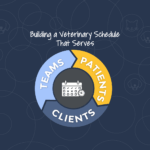By Nicole McKinney, Manager, HR Core Support
May is Mental Health Awareness Month! Encore wants to help remove the stigma and raise awareness of mental health and mental illness. Did you know that approximately 1 in 25 Americans lives with a serious mental illness such as schizophrenia, bipolar disorder, or major depression? It’s increasingly important to understand the realities of living with these conditions and strategies for attaining mental health and wellness.
Below are some tips and activities to help maintain or improve your overall mental well-being.
- Get plenty of sleep. Adults should get as close to 8 hours of sleep per night as they can. Although every individual’s body differs, sleep is essential for learning and improving daily productivity.
- Stop to enjoy small aspects of the day. Enjoying the small things may seem cliché, but it is vital to personal contentment. Try taking a walk on your break at work to appreciate the beauty in nature.
- Use a stress ball or some other stress reliever. The way we handle stress directly affects our health. A common method to deal with stress is a stress ball. Just squeeze the frustrations away!
- Perform a random act of kindness. Helping others by volunteering or simply doing one random act of kindness can improve self-esteem. Self-esteem improves mental wellness in a variety of ways, including a self-empowering sense of social connectivity. Volunteerism contributes to lessening loneliness and depression.
- Exercise. Exercise contributes to cardiovascular health. Improved cardiovascular health leads to better emotional stability and reduced anxiety.
- Deep breathing exercises. Relaxation involving deep breathing exercises can lower your heart rate, blood pressure, and breathing rate. These exercises subsequently allow your body and mind to recharge.
- Yoga is a fantastic tool for reducing anxiety and depression. Yoga in general offers great mental and physical wellness benefits. Did you know that Paylocity has some online offerings?
- Pet a dog. Therapy dogs have become a common method for improving the state of your emotions. Dogs provide emotional support by providing companionship to individuals. Simply petting a dog every day can improve one’s mental health.
- Eat breakfast. A lack of nutrition can lead to fogginess in brain function. Studies show the importance of a daily diet of foods high in omega-3 fatty acids. These and other foods have been shown to reduce symptoms of schizophrenia,depression, attention deficit hyperactivity disorder, and other mental disorders.
- Getting some sunlight – Vitamin D. Getting outside even when it is cold has been proven to help with depression, anxiety, and so much more. If you live somewhere where the sun doesn’t shine often, invest in a sunlight lamp or Vitamin D supplements.
Although these activities do not serve as a “cure” for mental health disorders, they are helpful and vital for maintaining good mental health. Always remember that some mental issues can be serious and seek help from your physician or a professional if necessary.
Not sure if you or someone you know is living with mental health problems? Experiencing one or more of the following feelings or behaviors can be an early warning sign of a problem:
- Eating or sleeping too much or too little
- Pulling away from people and usual activities
- Having low or no energy
- Feeling numb or like nothing matters
- Having unexplained aches and pains
- Feeling helpless or hopeless
- Smoking, drinking or using drugs more than usual.
- Feeling unusually confused, forgetful, on edge, angry, upset, worried, or scared.
- Yelling or fighting with family and friends
- Experiencing severe mood swings that cause problems in relationships.
- Having persistent thoughts and memories you can’t get out of your head.
- Hearing voices or believing things that are not true.
- Thinking of harming yourself or others
- Inability to perform daily tasks like taking care of your kids or getting to work or school
If you or someone you know is experiencing a mental health crisis, get help right away! Call 988, 800-SUICIDE (800-784-2433), or your local crisis center. Or search the internet for the numbers of emergency mental health treatment facilities near you.
Last, if you are in an immediate state of crisis, it’s best to go to a hospital emergency room for immediate care needs. There, healthcare providers will also be able to tell you where and how to get more help and connect you to your local resources.

Manager, HR Core Support





